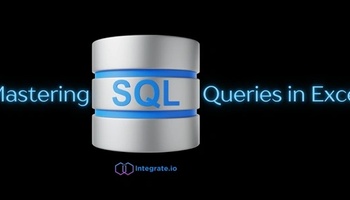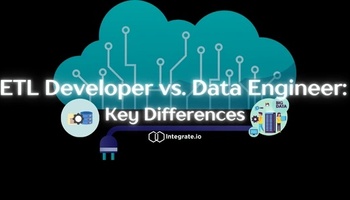The Top Seven Advantages of Active Metadata Support
- Active metadata facilitates the orchestration of metadata across multiple platforms.
- With active metadata, users can enable embedded collaborations.
- Active metadata improves data discovery via improved metadata context.
- With active metadata, you can improve master data models such as Products.
- Users can expect easier compliance and governance from the auto-classification of sensitive data.
- Systems with active metadata may utilize data relationships in identifying new features that improve data science models.
- Active metadata enables auto-profiling of data to prevent negative impact on applications.
Integrate.io’s new ETL platform offers active metadata support, driving active versions of metadata that serve as a single source of truth across multiple domains, applications, and devices, enhancing system interoperability. Try integrate.io today to create an integrated real-time and relational data source to drive your most essential business decisions.
What Is Active Metadata in Data Governance?
Active metadata support enables you to optimize a modern data stack throughout software management. At its core, active metadata includes an overlay of machine learning, human knowledge, and advanced integrations, resulting in a continuous real-time analysis and validation of contained information that aligns user design expectations with the actual applications in business processes.
Therefore, unlike conventional passive/technical data such as schemas and models, active metadata determines data and every action and change performed on it. For example, social or business metadata counts as types of active metadata.
Essentially, active metadata serves as the foundation of data management systems, garnering multiple advantages across data life cycles. You may apply active metadata in effectively detecting anomalies within multiple platforms, improving the overall data quality and analytics that improve your decision-making processes.
Active Metadata Management in the Future of E-commerce
According to Gartner, “Through 2024, active metadata capabilities will expand to include monitoring, evaluating, recommending design changes, and orchestrating processes in third-party data management solutions.”
Early adopters of active metadata use will have the capabilities to access valuable data from across multiple platforms and tools, drive analytics, and orchestrate data integration processes. With active metadata, you can gain a deeper understanding of metrics such as the changes, tabulations, and types of data within your pipelines, enabling improved workflow and quicker responses to anomalies within the system.
Experience Integrate.io’s active metadata support to optimize automated data lineage, expediting your tracking and categorization processes. Through active metadata support, you can expect an updated roadmap of enterprise data that provides a comprehensive view of the dependencies between data elements throughout the system.
Real-world Examples of Active MetadataBusinesses may apply active metadata in regulation compliance, detecting relevant personal information through the power of automation. Active metadata protects the categorized details, driving a smoother and more effective data management system.
Similarly, active metadata can help your system enhance and communicate through platform-to-platform orchestration. There are various methods of enabling interoperability among systems. Some methods include using the active metadata to create an action in a connected platform or prompt action or workflow within the system.
Active metadata support provides your data management systems with the capabilities for managing CDC in complex business databases. As such, you can significantly improve data synchronicity and the efficiency of your ETL processes.
Conclusion - Adding Metadata in the Modern Data Dictionary
As data management becomes increasingly complex and dynamic, organizations can no longer depend on passive metadata for their operating systems. The technical metadata from legacy systems serves as a static and generic overview of the system landscape that fails to provide decision-makers with the visibility required to monitor and optimize modern data structures and pipelines.
Integrate.io is a revolutionary CDC platform with reverse ETL capabilities, specially developed to provide e-commerce owners with the data management tools to elevate their business operations. Through reverse metadata, your system can benefit from advanced orchestration methods that give customers relevant data each time, rather than from a static standalone catalog.
By implementing Integrate.io’s integration platform, your governance program can benefit from active metadata support and drive your business applications. You can transfer relevant metadata for the right purpose - collected, qualified, and combined to form a complex and intelligent data fabric that drives optimal outcomes for every end user context.
Schedule a 14-day demo with Integrate.io today to transform your data warehouse into a powerful decision-making tool.






